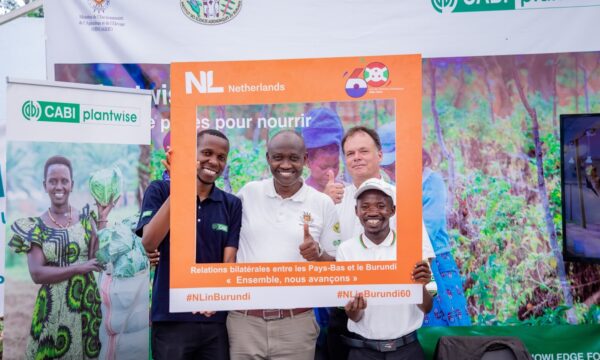It is evident that the development in the field of Information and Communication Technologies (ICTs) and digital applications plays pivotal role in present knowledge based economies. Recently, I attended an ICT focussed international conference with my colleague from D2F in Bengaluru which was organised by UAS Bengaluru and GCRA, Australia from 5th-7th January, 2016 on “Innovative Digital Applications for Sustainable Development” at UAS Bengaluru. University of Agricultural Sciences (UAS), Bengaluru has played a major role in developing technologies and extension methodologies and for the sustainable development of the rural communities in Karnataka. The Global Communication Research Association (GCRA), Australia has been providing an academic forum for the past 14 years and also encouraging development of research in underrepresented geographical areas of the globe by focusing their areas of interest.
The conference aimed to facilitate effective dialogue among the researchers, communication specialists, extension professionals and young students in these disciplines for consolidating the strategies to achieve sustainable development through digital applications.
More than 300 delegates from across the country and worldwide shared their knowledge and ideas emerging in the digital arena through this forum by actively participating in the scientific discussions and deliberations for bringing the technologies more closely towards the people of the developing geographies towards sustainable development. The conference had keynote presentations delivered through Skype and PowerPoint presentations for the purpose of exposing and sensitizing the students, researchers and different stakeholders working in the field of ICT recent innovations, studies on utilisation of ICT in agricultural extension.
The conference was inaugurated by Chief Minister of Karnataka, Sh. Siddaramaih who emphasized that the use of mobile phones is one of the best platforms for exchanging of information through Short Messaging Systems (SMS). He added that the ICT models and tools can be used to provide localized forecasts against weather-related adversaries, help create better linkages between the markets and farmers, thus increasing the latter’s share in consumer’s rupee and myriad ways in which it aids the agriculture and its sustainable development.
Dr Indrajit Banerjee, Director, Knowledge Societies Division, UNESCO in his keynote address mentioned that UNESCO’s overarching objectives-building peace, alleviation of poverty, sustainable development, Education for all, creation and dissemination of knowledge, freedom of expression and intercultural dialogue, and its two global priorities Africa and gender equality have natural synergies with access to information and knowledge. In his concluding remarks he shared that in the next years UNESCO will ensure that all their activities will foster universal, open, affordable and unfettered access to information and knowledge, help in narrowing the digital divide, including gender gap, encourage open standards, raise awareness and monitor progress over the Sustainable Development Goals (SDGs)
There was a lead lecture presented by CEO, Digital Green who accentuated the need of localisation of content used for interventions on technology to amplify farmer networks. He added that they have found out that women tend to be more receptive to video featuring fellow women just as men. He shared that the key to enable farmers to translate information into action, and ultimately income through localisation and integration with existing grassroots-level development efforts.
The three days conference had focussed discussions on nine broad themes revolving around ICTs -Application, role and innovations in agricultural extension and rural development; Tradition and modern media in agricultural Communication; Recent advances in Information Technology and its application in Agricultural Knowledge, Skill Development and Information Management; Expert systems, Decision Support Systems (DSS), Software development and Programming for agricultural extension, communication and Vocational Education; IT Acts and policy framework: Concerns, issues and challenges; Digital Communication strategies for Joint Forest Management and Natural Resource Management; Content generation and Skill Development for ICT based applications; Digital Applications in Mass Media.
Plantwise paper on initial findings and benefits of e-plant clinics piloted in Tamil Nadu with MSSRF was presented under the theme of “Recent advances in Information Technology and its application in Agricultural Knowledge” wherein the benefits of tablets for data collection and transfer of advice to farmers through SMS were presented. Under the same theme other models of web application based data collection and delivery of advice through SMS were presented which are being tested in Tamil and Karnataka viz., e-Velanmai and Electronic solutions against agricultural Pests (eSAPTM). The mKISAN SMS portal provides mobile based services to farmers and has been tested in different parts of the country. Many other review papers on studies to see the efficacy of different extension models were presented.
The Conference was a nice platform for us to share and learn from the experiences shared and lessons learnt by others in the field of ICT and their role in catalysing agricultural extension and linking with the grass root level stakeholders.
Related News & Blogs
How plant clinics are strengthening crop health services in Bangladesh
When the first-ever plant clinic in Bangladesh opened in Dhaka in 2013, it initially faced a lack of interest due to its novelty and limited awareness among farmers. However, it went on to expand, providing advice to over 17,000 farmers and led to the…
2 July 2025





